第2章 THE VOICE OF THE CITY(2)
If I'm not exceeding the spiel limit," I said, "let me ask you. You see New York during its vocative hours. It is the function of you and your brother cops to preserve the acoustics of the city. There must be a civic voice that is intelligible to you. At night during your lonely rounds you must have beard it.
What is the epitome of its turmoil and shouting?
What does the city say to you?
"Friend," said the policeman, spinning his club, "it don't say nothing. I get my orders from the man higher up. Say, I guess you're all right. Stand here for a few minutes and keep an eye open for the roundsman."
The cop melted into the darkness of the side street.
In ten minutes be had returned.
"Married last Tuesday," be said, half gruffly.
"You know bow they are. She comes to that corner at nine every night for a - comes to say ' hello! ' I generally manage to be there. Say, what was it you asked me a bit ago - what's doing in the city? Oh, there's a roof-garden or two just opened, twelve blocks up."
I crossed a crow's-foot of street-car tracks, and skirted the edge of an umbrageous park. An artificial Diana, gilded, heroic, poised, wind-ruled, on the tower, shimmered in the clear light of her namesake in the sky. Along came my poet, hurry- ing, hatted, haired, emitting dactyls, spondees and dactylis. I seized him.
"Bill," said I (in the magazine he is Cleon), "give me a lift. I am on an assignment to find out the Voice of the city. You see, it's a special order. Ordi- narily a symposium comprising the views of Henry Clews, John L. Sullivan, Edwin Markham, May Ir- win and Charles Schwab would be about all. But this is a different matter. We want a broad, poetic, mystic vocalization of the city's soul and meaning.
You are the very chap to give me a hint. Some years ago a man got at the Niagara Falls and gave us its pitch. The note was about two feet below the lowest G on the piano. Now, you can't put New York into a note unless it's better indorsed than that. But give me an idea of what it would say if it should speak. It is bound to be a mighty and far-reaching utterance.
To arrive at it we must take the tremendous crash of the chords of the day's traffic, the laughter and music of the night, the solemn tones of Dr. Parkhurst, the rag-time, the weeping, the stealthy bum of cab-wbeels, the shout of the press agent, the tinkle of fountains on the roof gardens, the hullabaloo of the strawberry vender and the covers of Everybody's Magazine, the whispers of the lovers in the parks - all these sounds, must go into your Voice - not combined, but mixed, and of the mixture an essence made; and of the es- sence an extract - an audible extract, of which one drop shall form the thing we seek."
"Do you remember," asked the poet, with a chuckle, "that California girl we met at Stiver's studio last week? Well, I'm on my way to see her.
She repeated that poem of mine, ' The Tribute of Spring,' word for word. She's the smartest proposi- tion in this town just at present. Say, how does this confounded tie look? I spoiled four before I got one to set right."
"And the Voice that I asked you about?" I in- quired.
"Oh, she doesn't sing," said Cleon. "But you ought to bear her recite my 'Angel of the Inshore Wind.'"
I passed on. I cornered a newsboy and be flashed at me prophetic pink papers that outstripped the news by two revolutions of the clock's longest hand.
"Son," I said, while I pretended to chase coins in my penny pocket, "doesn't it sometimes seem to you as if the city ought to be able to talk? All these ups and downs and funny business and queer things hap- pening every daywhat would it say, do you think, if it could speak?
"Quit yer kiddin'," said the boy. "Wot paper yer want? I got no time to waste. It's Mag's birthday, and I want thirty cents to git her a present."
Here was no interpreter of the city's mouthpiece.
I bought a paper, and consigned its undeclared treaties, its premeditated murders and unfought bat- tles to an ash can.
Again I repaired to the park and sat in the moon shade. I thought and thought, and wondered why none could tell me what I asked for.
And then, as swift as light from a fixed star, the answer came to me. I arose and hurried - hurried as so many reasoners must, back around my circle.
I knew the answer and I bugged it in my breast as I flew, fearing lest some one would stop me and demand my secret.
Aurelia was still on the stoop. The moon was higher and the ivy shadows were deeper. I sat at her side and we watched a little cloud tilt at the drifting moon and go asunder, quite pale and discomfited.
And then, wonder of wonders and delight of de- lights! our hands somehow touched, and our fingers closed together and did not part.
After half an hour Aurelia said, with that smile of hers:
"Do you know, you haven't spoken a word since you came back! "
"That," said I, nodding wisely, "is the Voice of the City."